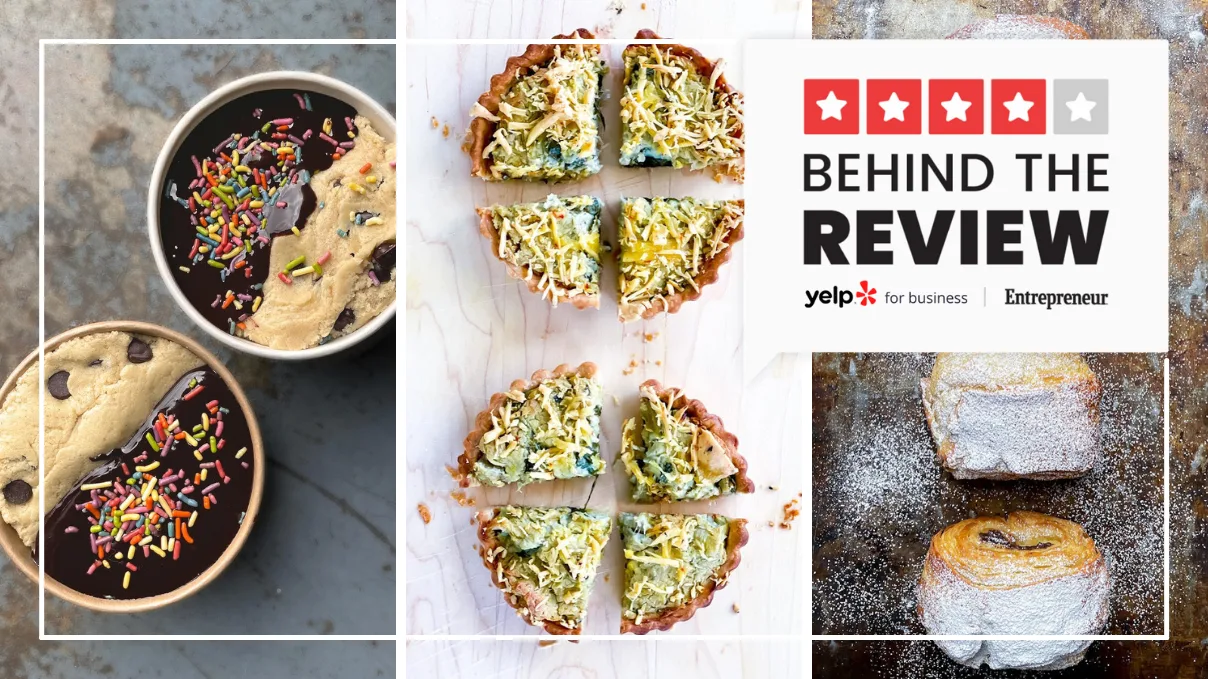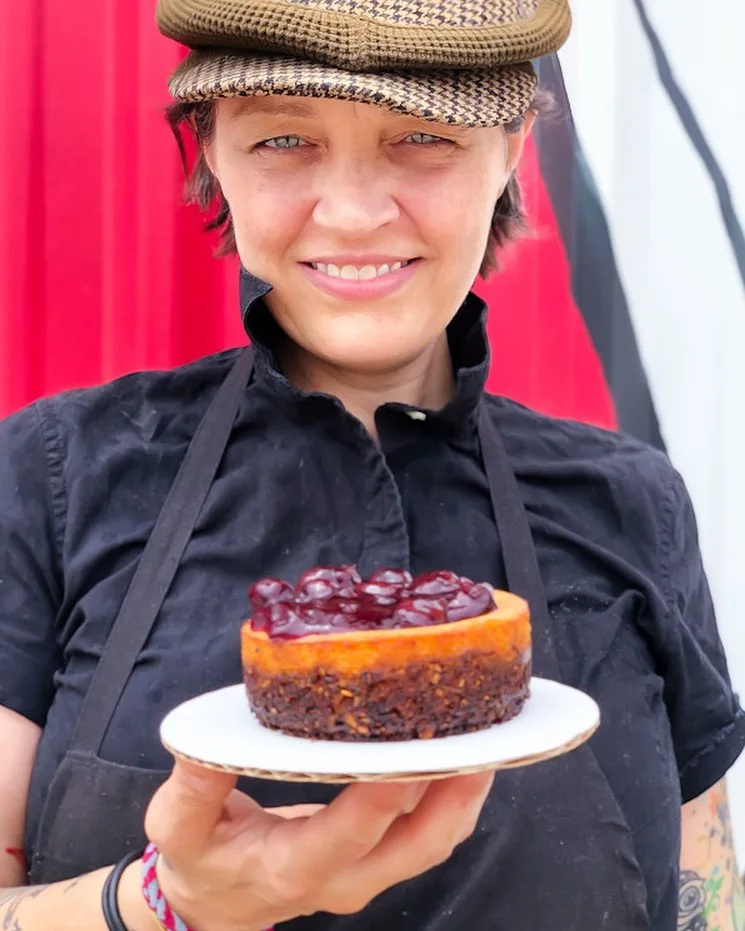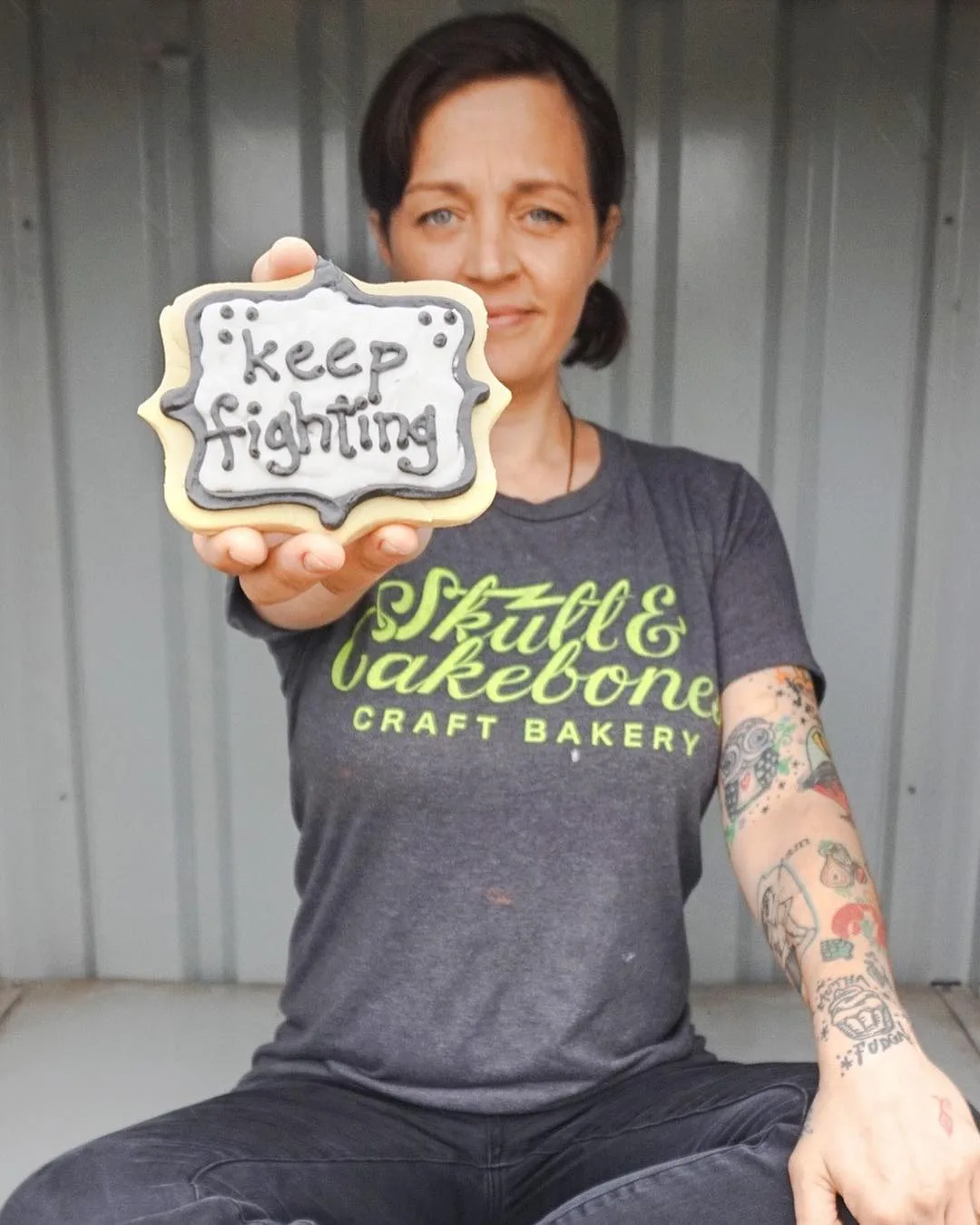‘If I can reach one person, then I’ve done something right:’ A small business owner shares her mental health story
Content warning: This post contains descriptions of suicide and suicidal thoughts. If you or someone you know needs help, please consider these resources.

This story came from a conversation between Yelp’s Small Business Expert Emily Washcovick and small business owners Sascha Biesi and Yauss Berenji, who discuss their personal experiences with mental health and how it shaped their business’s dialogue and identity.
For years, Sascha Biesi told one, simple story about the founding of her bakery: She was inspired to create plant-based, allergen-free treats for her daughter Ruby, who had severe allergies as a child. And while that tale is true, there’s another side to the story—one that she now proudly tells as a mental health advocate.

After years of struggling with her mental health and ultimately undergoing several intensive treatments, baking helped Sascha find her way back to herself. She founded Skull & Cakebones with her wife, Yauss Berenji, to share her newfound talent with their community outside Austin, Texas.
Sascha believes that being open about her mental health and leading with authenticity can encourage others to be open too. Today, the couple uses their business platform to destigmatize mental illness and provide a safe space for connection.
Sascha’s story
Sascha was diagnosed with depression in high school, and in college, bipolar disorder. Doctors told her she was “med-resistant,” which is a term used to describe patients whose mental illnesses don’t seem to react to treatment plans. As a result, Sascha underwent years of new medications and treatments—the most intensive being electric shock therapy—to try to tackle her serious mental health challenges.
In 2009, she came out of four hospitalizations and two months of electric shock therapy severely underweight. The treatment provided no relief, and she began experiencing intense memory loss as a result of the therapy. As an escape and memory exercise, she turned to her grandmother’s recipe box.
“I started using cooking and baking as a way to start trying to remember more than one thing at a time, and that was how I got really, really good at the vegan stuff. It was after electric shock therapy that I just sort of woke up from that experience with this ability to be a vegan chef,” Sascha said.
She kept her lifelong battle to improve her mental health hidden for a large part of her career, choosing instead to attribute her baking creativity to necessity—her daughter, Ruby, has allergies that dictate much of what she can eat. “I was singing the song of the mother. It was very relatable and sweet,” Sascha said.
That all changed one day when Skull & Cakebones lost a young employee, the same age as Ruby, to suicide. “She left me at work and went home and ended her life,” Sascha said. “It was at that moment that I realized I wanted to be more involved. I wanted to be more open. I wanted to be more vocal. I wanted to be more available. And the only way for me to be able to do that was to use our business as a platform.”
Using her platform
Sascha’s first chance to use her platform came in the form of a pop-up. Every May—Mental Health Awareness Month—bakers host Depressed Cake Shops to break the stigma around mental illness and provide safe spaces for conversation. The worldwide grass roots movement is designed to help amateur or professional bakers facilitate conversations and raise funds for a mental health charity of their choice.
After years of struggling in silence, Sascha leapt at the chance to partner with National Alliance on Mental Illness (NAMI) and host a Depressed Cake Shop of her own. “I didn’t want [my employee’s] life to be forgotten. It was important to continue to tell her story,” Sascha said. “But I also really felt like if I could tell my story and be honest and open, then maybe it’ll reach somebody who feels the same way or is having the same kind of struggle. If I can reach one person, then I’ve done something right.”
For a month, Skull & Cakebones sold baked goods that reflected the light and the darkness of mental health: gray on the outside but bursting with color and bright, citrusy flavor on the inside. During evenings, they offered free workshops at the bakery, including art therapy and card writing sessions for another mental health non-profit.
The Depressed Cake Shop was bustling from open to close, but for Sascha and Yauss, the measure of their success was not a sold-out bakery or even a big check for NAMI—it was the conversations they sparked among their customers.
“It allowed us opportunities to have conversations with real people who needed a friend in that moment or had a friend that was suffering,” Yauss said. “They could come pick up a cookie that said ‘shine it on’ or ‘it gets better’ or ‘it’s okay to not be okay,’ and they could take that to their friend and, in turn, give them a sense of hope or allow them to open up and have a conversation about how they’re feeling. That, for us, was the measure of success.”

Sharing her story
The Depressed Cake Shop laid the foundation for authentic conversations around mental health, but Sascha and Yauss wanted to keep the momentum going year round. With encouragement from Yauss, Sascha began sharing her own story and advocating for mental health on Skull & Cakebones’ social media accounts—a decision they did not make lightly.
“There’s a lot of risk involved in leaving yourself so exposed by telling your story,” Sascha said. “But when the door is open that wide, there can also be this rush of goodness that comes. In telling my story, we’ve experienced this incredible response [of] people being so kind and wanting to share their story. So not only am I open now, but through opening myself, other people are opening too.”
While being vocal online can inspire others, Sascha and Yauss also make sure to put their values into practice at their business. Specifically, they bring empathy and connection to their customer service—making an impact not just online, but also in the lives of individual customers. “[When we] see a customer that we know is struggling, we do things like make sure their ticket goes to the front so it can be made first,” Yauss said.

“‘Cause they become friends now,” Sascha added. “Once you start talking about your mental health with somebody, they stop just being a customer, and they start to become a friend. Now you’re starting to talk on a different level than, ‘How is your grilled cheese today?’”
Just as important, Sascha and Yauss also extend this empathy to themselves. Small business owners are at high risk for burnout in the workplace—particularly those whose identities are entwined with their jobs. This is something Sascha has learned over a lifetime of balancing mental health and entrepreneurship.
“As a business owner, you think everything has to be done now or it’s never gonna get done,” she said. “But the truth is that if you take care of yourself and take that time, you can make those decisions without the panic that ensues. So take the time, take a deep breath, go home, chill out for a second, come back, and make better decisions. Always think of your future self. That is really the one thing that we share [with] every single person that we come into contact with, whether they work for us for five minutes or five years: Take care of your future self.”
Photos from Skull & Cakebones; interviews by Emily Washcovick
This story comes from an episode of Behind the Review, Yelp & Entrepreneur Media’s weekly podcast. Listen below to hear from Sascha, Yauss, and Emily, or visit the episode page to read more, subscribe to the show, and explore other episodes.